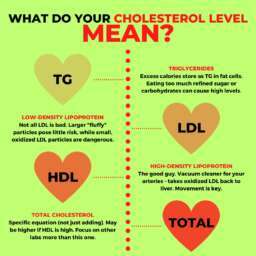How to get Semaglutide for Weight Loss! Semaglutide is a medication belonging to the class of drugs known as GLP-1 receptor agonists. Initially developed for managing type 2 diabetes, Semaglutide has gained attention for its additional benefit in weight loss.
Its Role in Weight Loss

Semaglutide’s weight loss mechanism revolves around mimicking the action of GLP-1, a hormone naturally present in the body. When administered, Semaglutide binds to GLP-1 receptors in the brain, leading to various effects conducive to weight reduction.
- Appetite Regulation: Semaglutide helps curb hunger pangs, facilitating reduced calorie intake. By regulating appetite, it aids individuals in controlling their food consumption.
- Metabolism Regulation: Semaglutide also slows down stomach emptying, resulting in prolonged feelings of fullness and satisfaction after meals.
These combined effects make Semaglutide an effective tool for weight loss, especially for those grappling with obesity and related health concerns. It serves as a pharmaceutical intervention complementing lifestyle changes like diet and exercise, offering a holistic approach to weight management.
How to get Semaglutide for Weight Loss
Understanding Weight Loss with Semaglutide

Mechanism of Action:
- GLP-1 Receptor Agonist: Semaglutide functions as a GLP-1 receptor agonist. Binding to GLP-1 receptors in the brain and other tissues to mimic the effects of the natural hormone GLP-1.
- Appetite Regulation: By influencing the hypothalamus, Semaglutide reduces feelings of hunger, promoting lower calorie intake crucial for weight loss.
- Delayed Gastric Emptying: Semaglutide slows down stomach emptying, prolonging feelings of fullness after meals and aiding in calorie restriction and weight management.
- Metabolic Effects: Semaglutide enhances insulin secretion and inhibits glucagon release, regulating blood sugar levels and promoting the utilization of glucose and stored fat for energy.
Clinical Trials and Results:
- STEP Program: Semaglutide Treatment Effect in People with Obesity (STEP) trials demonstrated significant weight loss compared to placebo across various dosages and durations.
- STEP 1 Trial: Participants achieved an average weight loss ranging from 14.9% to 15.3% of initial body weight, significantly higher than the placebo group.
- STEP 4 Trial: Semaglutide therapy led to clinically meaningful reductions in body weight and improved glycemic control in individuals with obesity and type 2 diabetes.
Overall, Semaglutide’s multifaceted approach to weight loss, coupled with significant clinical trial results, highlights its efficacy and safety as a pharmacological intervention for individuals with obesity and related comorbidities.
How to get Semaglutide for Weight Loss
How to Obtain Semaglutide for Weight Loss

Prescription Requirements:
- Obtaining Semaglutide: Semaglutide for weight loss requires a prescription from a healthcare provider and cannot be bought over the counter.
- Consultation: Schedule a consultation with a qualified healthcare professional to assess suitability based on medical history, current medications, and weight loss goals.
- Assessment: Healthcare providers, including primary care physicians or endocrinologists, conduct thorough assessments to determine appropriateness.
- Prescription Issuance: If deemed suitable, the healthcare provider will issue a prescription with dosage, administration, and monitoring instructions.
Availability and Accessibility:
- Formulations: Semaglutide is available in various formulations and dosages for type 2 diabetes and obesity management.
- Clinical Settings: Its potential for weight loss has increased its availability in clinical settings, accessible through pharmacies and healthcare facilities.
- Regional Variations: Availability may vary based on regulatory approvals, healthcare provider preferences, and insurance coverage.
- Inquiry and Insurance: Inquire with healthcare providers about availability and check insurance coverage for potential out-of-pocket costs.
While Semaglutide offers promise for weight loss, accessibility may vary due to regional regulations and healthcare practices. Consult healthcare providers to determine suitable treatment options based on individual needs and circumstances.
How to get Semaglutide for Weight Loss
Guidelines for Using Semaglutide

Dosage and Administration:
When using Semaglutide for weight loss, it’s crucial to follow the prescribed dosage and administration guidelines provided by your healthcare provider. Typically, Semaglutide is available in a pre-filled injection pen for subcutaneous (under the skin) administration. Here are some general guidelines:
- Starting Dosage: The initial recommended dosage of Semaglutide for weight loss is usually low to minimize the risk of side effects. Common starting doses range from 0.25 mg to 0.5 mg injected subcutaneously once weekly.
- Maintenance Dosage: The maintenance dosage of Semaglutide for weight loss is typically between 2.4 mg to 2.7 mg injected subcutaneously once weekly. This dosage has been shown to produce significant weight loss results in clinical trials.
- Storage: Store Semaglutide injection pens in the refrigerator between 36°F to 46°F (2°C to 8°C). After opening, you can keep the pen at room temperature (below 86°F or 30°C) for up to 56 days. Refrigerate any unused pens and protect them from light.
- Missed Dose: If you miss a dose of Semaglutide, administer it as soon as possible within five days of the missed dose. If more than five days pass, skip the missed dose and administer the next dose as scheduled.
- Consultation with Healthcare Provider: Before making any changes to your Semaglutide dosage or administration schedule, consult with your healthcare provider to ensure safe and effective treatment.

Potential Side Effects:
While Semaglutide is generally well-tolerated, it may cause some side effects, especially during the initial titration period. Common side effects may include:
- Nausea: Mild to moderate nausea is a common side effect of Semaglutide treatment, particularly during the first few weeks of therapy. This side effect typically improves over time as the body adjusts to the medication.
- Vomiting: Some individuals may experience vomiting, especially when starting Semaglutide or when the dosage is increased. If vomiting persists or becomes severe, contact your healthcare provider.
- Diarrhea: Semaglutide may cause gastrointestinal disturbances such as diarrhea in some individuals. Staying hydrated and consuming a balanced diet may help alleviate this side effect.
- Constipation: On the other hand, some individuals may experience constipation while taking Semaglutide. Increasing dietary fiber intake and staying physically active can help alleviate constipation symptoms.
- Other Adverse Reactions: Less common side effects of Semaglutide may include headache, fatigue, abdominal pain, and gallbladder-related complications. If you experience any unusual or severe side effects while taking Semaglutide, contact your healthcare provider immediately.
It’s essential to discuss potential side effects with your healthcare provider before starting Semaglutide treatment. They can provide personalized guidance and recommendations to manage side effects effectively and ensure a positive treatment experience.
How to get Semaglutide for Weight Loss
Lifestyle Changes for Enhanced Results

Importance of Diet and Exercise:
- Balanced Diet: Adopting a balanced and nutritious diet is crucial for supporting Semaglutide therapy and promoting overall health. Focus on consuming a variety of whole foods, including fruits, vegetables, lean proteins, whole grains, and healthy fats. Limit intake of processed foods, sugary beverages, and high-calorie snacks. A diet rich in nutrients provides the body with essential vitamins, minerals, and antioxidants while helping to manage calorie intake for weight loss.
- Portion Control: Pay attention to portion sizes and avoid overeating. Use techniques such as measuring portions, eating slowly, and listening to your body’s hunger and fullness cues. Portion control can help prevent excess calorie consumption and support weight loss efforts.
- Meal Planning: Plan and prepare meals ahead of time to ensure healthy options are readily available. Incorporate a variety of foods from all food groups into your meals to ensure a balanced nutrient intake. Meal planning can help prevent impulsive food choices and support adherence to dietary goals.
- Hydration: Drink an adequate amount of water throughout the day to stay hydrated and support overall health. Water is essential for various bodily functions, including metabolism and digestion. Opt for water as your primary beverage choice and limit consumption of sugary drinks and alcohol.
- Mindful Eating: Practice mindful eating by paying attention to your food choices, eating slowly, and savoring each bite. Mindful eating can help increase awareness of hunger and fullness signals, prevent overeating, and promote a healthier relationship with food.
Combining Semaglutide with Healthy Habits:
- Enhanced Weight Loss: Studies have shown that combining Semaglutide with diet and exercise leads to greater weight loss compared to Semaglutide alone. Healthy lifestyle habits complement the appetite-suppressing effects of Semaglutide, resulting in more significant reductions in body weight and improved metabolic outcomes.
- Sustainable Results: Incorporating diet and exercise changes alongside Semaglutide therapy promotes long-term weight loss success. While Semaglutide can help initiate weight loss, lifestyle modifications support ongoing progress and maintenance of results beyond the duration of treatment.
- Improved Metabolic Health: Diet and exercise play crucial roles in improving metabolic health parameters such as blood sugar levels, cholesterol levels, and blood pressure. By addressing lifestyle factors, individuals can optimize the metabolic benefits of Semaglutide and reduce the risk of obesity-related complications.
- Increased Energy Levels: Regular physical activity and a balanced diet provide the body with the energy it needs to function optimally. Engaging in exercise and consuming nutrient-dense foods can boost energy levels, improve mood, and enhance overall quality of life.
- Long-Term Wellness: Adopting healthy lifestyle habits alongside Semaglutide therapy promotes holistic wellness and reduces the risk of chronic diseases associated with obesity. By prioritizing diet and exercise, individuals can support their physical, mental, and emotional well-being for long-lasting health benefits.
How to get Semaglutide for Weight Loss
Common Myths and Misconceptions:

Despite its effectiveness and growing popularity as a weight loss medication, Semaglutide is surrounded by several myths and misconceptions. By debunking these myths, we can provide accurate information and empower individuals to make informed decisions about their health and treatment options.
1 Myth: Semaglutide is a “Magic Pill” for Weight Loss.
- Fact: While Semaglutide can be highly effective in promoting weight loss, it is not a magic solution. Successful weight loss requires a comprehensive approach that includes Semaglutide therapy alongside healthy lifestyle habits such as diet and exercise.
2 Myth: Semaglutide is Only for Individuals with Diabetes.
- Fact: Although Semaglutide was originally developed to treat type 2 diabetes, regulatory authorities have also approved its use for weight management. Healthcare providers can prescribe Semaglutide to individuals with obesity or overweight, regardless of whether they have diabetes.
3 Myth: Semaglutide Causes Severe Side Effects.
- Fact: Like any medication, Semaglutide may cause side effects in some individuals, but they are generally mild to moderate and temporary. Common side effects include nausea, vomiting, and diarrhea, which often improve over time as the body adjusts to the medication.
4 Myth: Semaglutide Leads to Excessive Weight Loss.
- Fact: While Semaglutide can result in significant weight loss, the amount of weight lost varies from person to person. Weight loss outcomes depend on factors such as dosage, individual response to treatment, and adherence to lifestyle modifications.
5 Myth: Semaglutide is Addictive.
- Fact: Semaglutide is not addictive. It works by targeting specific receptors in the body to regulate appetite and metabolism. Once treatment is discontinued, any weight lost with Semaglutide is typically maintained through ongoing lifestyle changes.
6 Myth: Semaglutide is Expensive and Inaccessible.
- Fact: While Semaglutide may have a higher cost compared to some other weight loss medications, it may be covered by insurance plans or available through patient assistance programs. Additionally, Semaglutide’s effectiveness and potential for long-term weight loss may outweigh its initial cost.
7 Myth: Semaglutide is Unsafe for Long-Term Use.
- Fact: Semaglutide has been studied extensively for both diabetes management and weight loss. While long-term safety data is still being collected, current evidence suggests that it can be used safely under medical supervision. Healthcare providers monitor patients regularly to ensure safe and effective treatment.
8 Myth: Semaglutide is Only for Severely Obese Individuals.
- Fact: Semaglutide may be prescribed to individuals with a body mass index (BMI) above a certain threshold, but it can also be beneficial for those with lower BMIs who struggle with obesity-related health issues. Your healthcare provider can determine if Semaglutide is appropriate for you based on your individual health status and weight loss goals.
By dispelling these myths and providing accurate information about Semaglutide and its role in weight management, we can help individuals make informed decisions about their health and treatment options. It’s essential to consult with a healthcare provider for personalized guidance and recommendations tailored to your specific needs and circumstances.
How to get Semaglutide for Weight Loss
Safety Concerns and Precautions:

Semaglutide is generally considered safe and well-tolerated for the treatment of obesity and related conditions. However, certain individuals may need to exercise caution or avoid Semaglutide altogether due to specific safety concerns and potential interactions with other medications.
Who Should Avoid Semaglutide?
- Individuals with a History of Thyroid Cancer: Semaglutide may increase the risk of thyroid tumors, particularly in animal studies. Therefore, individuals with a history of medullary thyroid carcinoma or multiple endocrine neoplasia syndrome type 2 (MEN 2) should avoid Semaglutide due to the potential risk of thyroid cancer.
- Severe Gastrointestinal Disorders: Semaglutide may exacerbate gastrointestinal disorders such as gastroparesis or severe inflammatory bowel disease. Individuals with these conditions should use Semaglutide with caution and under the supervision of a healthcare provider.
- Allergy to Semaglutide or its Components: Individuals with a known allergy or hypersensitivity to Semaglutide or any of its components should avoid using the medication to prevent allergic reactions.
- Severe Renal Impairment: Semaglutide has not been extensively studied in individuals with severe renal impairment. Therefore, caution should be exercised when prescribing Semaglutide to patients with severely impaired renal function.
Interactions with Other Medications:
- Insulin and Insulin Secretagogues: Semaglutide may potentiate the glucose-lowering effects of insulin and insulin secretagogues, increasing the risk of hypoglycemia. Close monitoring of blood sugar levels and adjustment of insulin or secretagogue dosage may be necessary when using Semaglutide in combination with these medications.
- Oral Medications: Semaglutide may delay gastric emptying, potentially affecting the absorption of orally administered medications. It is recommended to administer oral medications at least one hour before or four hours after Semaglutide injection to minimize the risk of interactions.
- Warfarin and Anticoagulants: Semaglutide may affect the absorption of oral anticoagulants such as warfarin, leading to changes in their efficacy. Regular monitoring of international normalized ratio (INR) levels is recommended when Semaglutide is initiated or discontinued in patients receiving oral anticoagulant therapy.
- Oral Contraceptives: Semaglutide may affect the absorption of oral contraceptives, potentially reducing their efficacy. Alternative contraceptive methods or additional precautions may be necessary to ensure effective contraception in women using Semaglutide.
- Other GLP-1 Receptor Agonists: Concurrent use of Semaglutide with other GLP-1 receptor agonists may increase the risk of gastrointestinal side effects such as nausea and vomiting. Careful monitoring and dose adjustments may be required when combining these medications.
It is essential for individuals considering Semaglutide therapy to discuss their medical history, current medications, and any potential safety concerns with their healthcare provider before starting treatment. Your healthcare provider can provide personalized guidance and recommendations based on your individual health status and treatment needs.
How to get Semaglutide for Weight Loss
Cost Analysis and Affordability:

Semaglutide treatment can be associated with various expenses, including medication costs, medical consultations, and potential additional healthcare services. Understanding these expenses and exploring insurance coverage and financial assistance options can help individuals assess the affordability of Semaglutide therapy.
Medication Costs:
- The cost of Semaglutide medication can vary depending on factors such as dosage strength, quantity prescribed, and the pharmacy where it is purchased.
- Typically, Semaglutide is available in pre-filled injection pens, and the price per pen may range from approximately $800 to $1000 or more without insurance or discounts.
- Since Semaglutide is often prescribed for long-term use, the cumulative cost of medication over time can be significant.
Medical Consultations:
- Individuals undergoing Semaglutide therapy may incur expenses related to medical consultations with healthcare providers, including primary care physicians, endocrinologists, or specialists in weight management.
- Consultation fees may vary depending on the healthcare provider’s practice, location, and insurance coverage.
Laboratory Tests and Monitoring:
- Healthcare providers may order laboratory tests to monitor patients’ response to Semaglutide therapy and assess potential side effects or complications.
- The cost of laboratory tests, such as blood glucose monitoring and lipid profiles, may add to the overall expenses associated with Semaglutide treatment.
How to get Semaglutide for Weight Loss
Insurance Coverage and Financial Assistance Options:

Insurance Coverage:
- Many health insurance plans may provide coverage for Semaglutide treatment, particularly for individuals with a diagnosis of obesity or related health conditions.
- Coverage policies may vary depending on the insurance provider and the specific plan. It is essential to review the details of your insurance policy or contact your insurance provider directly to understand the extent of coverage for Semaglutide.
- Prior authorization from the insurance company may be required before Semaglutide medication is dispensed. Your healthcare provider’s office can assist with the authorization process.
Patient Assistance Programs:
- Pharmaceutical companies that manufacture Semaglutide may offer patient assistance programs to help individuals afford the medication.
- These programs may provide financial assistance, discounts, or vouchers to eligible patients who meet specific criteria, such as income limitations or lack of insurance coverage.
- Eligibility requirements and application procedures for patient assistance programs may vary. Patients can inquire with their healthcare provider or visit the manufacturer’s website for more information on available assistance options.
Discount Cards and Coupons:
- Some pharmaceutical companies may offer discount cards or coupons that can help reduce the out-of-pocket costs of Semaglutide medication.
- These discount programs may be available directly from the manufacturer or through healthcare providers’ offices. Patients can inquire about discount opportunities and eligibility criteria when discussing Semaglutide treatment with their healthcare provider.
Health Savings Accounts (HSAs) and Flexible Spending Accounts (FSAs):
- Patients with HSAs or FSAs may be able to use funds from these accounts to cover eligible expenses related to Semaglutide treatment, such as medication costs, medical consultations, and laboratory tests.
- Contributions to HSAs and FSAs are made on a pre-tax basis, providing potential tax benefits for healthcare expenses.
By taking into account these factors and delving into insurance coverage and financial assistance options, individuals can make well-informed decisions regarding the affordability of Semaglutide therapy. Furthermore, they can access the necessary support to effectively manage treatment costs. Discussing financial considerations with healthcare providers and actively exploring available resources is crucial to ensure access to essential medications and healthcare services.
How to get Semaglutide for Weight Loss
Consultation with Healthcare Providers:

The Importance of Medical Guidance Before Starting Semaglutide Therapy
Before initiating Semaglutide therapy for weight loss or any other condition, it is essential to seek medical guidance from a qualified healthcare provider. Here are several reasons why seeking medical guidance before starting Semaglutide therapy is crucial:
- Evaluation of Health Status:
- Healthcare providers assess individuals’ overall health status, medical history, and current medications to determine if Semaglutide is a suitable treatment option.
- Risk Assessment and Safety Precautions:
- Healthcare providers evaluate potential risks and safety precautions associated with Semaglutide therapy, such as the risk of hypoglycemia, gastrointestinal side effects, and interactions with other medications.
- Optimization of Treatment Plan:
- Healthcare providers work with individuals to develop a comprehensive treatment plan that incorporates Semaglutide therapy alongside lifestyle modifications, dietary changes, and exercise recommendations.
- Dosage Adjustment and Titration:
- Healthcare providers prescribe the appropriate dosage of Semaglutide based on individual factors such as weight, age, and medical history. They may also recommend a titration schedule to gradually increase the dosage over time, allowing the body to adjust to the medication and minimizing the risk of side effects.
- Monitoring and Follow-Up Care:
- Healthcare providers monitor individuals’ progress and response to Semaglutide therapy through regular follow-up appointments and assessments. They may order laboratory tests, such as blood glucose monitoring and lipid profiles, to track changes in metabolic parameters and ensure optimal treatment outcomes.
How to get Semaglutide for Weight Loss
Semaglutide vs. Traditional Weight Loss Techniques

When considering weight loss options, individuals often weigh the benefits and drawbacks of different approaches, including pharmaceutical interventions like Semaglutide and traditional weight loss techniques. Here’s a comparative analysis to help understand how Semaglutide stacks up against traditional methods:
1. Effectiveness:
- Semaglutide: Clinical trials have shown Semaglutide to be highly effective in promoting weight loss, with participants experiencing significant reductions in body weight compared to placebo. The appetite-suppressing and metabolic effects of Semaglutide contribute to its efficacy in supporting weight loss efforts.
- Traditional Weight Loss Techniques: Traditional methods such as diet modification, exercise, and behavior therapy can also lead to weight loss, but their effectiveness may vary depending on individual adherence, metabolic factors, and the sustainability of lifestyle changes.
2. Speed of Results:
- Semaglutide: Participants usually experience substantial reductions in body weight within a few months of starting treatment, as Semaglutide generates rapid weight loss outcomes. Additionally, some individuals may observe weight loss as early as the first few weeks of therapy.
- Traditional Weight Loss Techniques: Weight loss attained through conventional methods typically progresses gradually and might necessitate extended durations to observe significant outcomes. Moreover, sustaining consistent adherence to dietary and exercise adjustments is imperative for attaining and preserving weight loss in the long term.
3. Sustainability:
- Semaglutide: While Semaglutide can lead to significant weight loss during treatment, its long-term sustainability may depend on continued medication adherence and maintenance of lifestyle modifications. Some individuals may experience weight regain after discontinuing Semaglutide therapy.
- Traditional Weight Loss Techniques: Traditional methods emphasize sustainable lifestyle changes, including healthy eating habits and regular physical activity. While weight loss may be slower compared to Semaglutide, the focus on behavior modification can lead to lasting results and improved overall health.
4. Safety Profile:
- Semaglutide: Semaglutide is generally well-tolerated, but it may cause side effects such as nausea, vomiting, and diarrhea in some individuals. Serious adverse events are rare but may include pancreatitis, gallbladder disorders, and thyroid tumors.
- Traditional Weight Loss Techniques: Traditional methods are generally safe when implemented under the guidance of a healthcare provider. However, extreme calorie restriction, fad diets, or excessive exercise can pose risks to physical and mental health if not balanced and monitored appropriately.
5. Accessibility and Convenience:
- Semaglutide: Semaglutide is available by prescription and may require regular visits to a healthcare provider for monitoring and follow-up care. It is administered via subcutaneous injection once weekly, which may be less convenient for some individuals.
- Traditional Weight Loss Techniques: Traditional methods offer a range of options that vary in accessibility and convenience, including dietary changes, exercise programs, support groups, and online resources. Individuals can choose methods that fit their lifestyle and preferences.
6. Cost:
- Semaglutide: The cost of Semaglutide treatment can be higher compared to some traditional weight loss techniques, particularly if insurance coverage is limited or unavailable. However, financial assistance programs and discounts may be available to help offset medication costs.
- Traditional Weight Loss Techniques: Traditional methods may involve minimal or no additional costs, depending on factors such as gym memberships, dietary supplements, or the purchase of specialty foods. However, expenses associated with healthy food choices and professional support services may vary.
In summary, Semaglutide offers a pharmacological approach to weight loss that can be highly effective for individuals struggling to achieve significant results through traditional methods alone. While Semaglutide may provide rapid weight loss outcomes, traditional techniques emphasize sustainable lifestyle changes that promote long-term health and well-being. Ultimately, the choice between Semaglutide and traditional weight loss methods depends on individual preferences, medical considerations, and treatment goals. Consulting with a healthcare provider can help individuals make informed decisions about the most suitable approach for their needs.
How to get Semaglutide for Weight Loss
Future Prospects and Research Developments in Semaglutide Therapy

As Semaglutide continues to demonstrate promising results in weight loss management and other therapeutic areas. It’s ongoing research and clinical studies are paving the way for potential advancements and innovations in Semaglutide therapy. Here are some key areas of focus and potential developments on the horizon:
Expanded Indications:
- Ongoing research is currently exploring Semaglutide’s potential in other disease states and metabolic disorders, although it is currently approved for the treatment of obesity and type 2 diabetes. Future indications may include cardiovascular disease, non-alcoholic fatty liver disease (NAFLD), and polycystic ovary syndrome (PCOS).
Combination Therapies:
- Researchers are investigating the efficacy and safety of combining Semaglutide with other pharmacological agents. Treatment modalities to enhance weight loss outcomes and address co-existing health conditions. Combinations with medications targeting appetite regulation, metabolic pathways, or gut microbiota modulation are of particular interest.
Long-Acting Formulations:
- Long-acting formulations of Semaglutide, such as extended-release or depot formulations, are being explored to improve dosing convenience and adherence. These formulations could offer less frequent dosing intervals, such as once monthly or even less frequently, while maintaining therapeutic efficacy.
Personalized Treatment Approaches:
- Advancements in precision medicine and genetic profiling may enable personalized approaches to Semaglutide therapy. Tailoring treatment regimens to individual genetic, metabolic, and lifestyle factors. This personalized approach could optimize treatment outcomes and minimize adverse effects.
Mechanism of Action Studies:
- Further research into the underlying mechanisms of Semaglutide’s action is underway to elucidate its effects on appetite regulation. It’s energy expenditure, and metabolic pathways. Understanding these mechanisms at a molecular level could lead to the development of novel therapeutic targets and interventions.
Cardiovascular and Renal Outcomes Trials:
- Ongoing large-scale cardiovascular outcomes trials (CVOTs) and renal outcomes trials (ROTOs) are currently underway to assess the cardiovascular and renal safety profiles of Semaglutide in high-risk populations, including individuals with cardiovascular disease or chronic kidney disease. These studies are designed to furnish comprehensive data regarding the long-term cardiovascular and renal effects of Semaglutide therapy.
Digital Health Solutions:
- Integration of digital health technologies, such as smartphone apps, wearable devices, and telemedicine platforms. All into Semaglutide therapy may enhance patient engagement, monitoring, and adherence. These digital tools can facilitate real-time data collection, remote consultations, and personalized support for individuals undergoing Semaglutide treatment.
Pediatric and Adolescent Populations:
- Ongoing research delves into the safety and efficacy of Semaglutide therapy among pediatric and adolescent populations. These studies aim to elucidate the potential role of Semaglutide in addressing obesity and related metabolic disorders in younger age groups, emphasizing the critical importance of early intervention for ensuring favorable long-term health outcomes.
Overall, ongoing research and clinical trials hold promise for advancing Semaglutide therapy. By broadening its therapeutic applications in weight management and beyond, Semaglutide holds the potential to revolutionize treatment. Through the utilization of the latest scientific discoveries and technological innovations, Semaglutide has the capacity to transform the landscape for obesity and related metabolic conditions, thereby enhancing health outcomes and improving the quality of life for individuals worldwide.
How to get Semaglutide for Weight Loss
Addressing Concerns and Queries: Common Questions About Semaglutide for Weight Loss

As Semaglutide gains recognition as a potential treatment for weight loss. Individuals may have questions and concerns about its safety, efficacy, and practical aspects of use. Here are answers to some common queries:
1. Is Semaglutide safe for long-term use?
- Semaglutide has been studied extensively in clinical trials for both diabetes management and weight loss. While it is generally considered safe for long-term use, individuals should discuss any concerns with their healthcare provider.
2. How does Semaglutide promote weight loss?
- Semaglutide, belonging to a class of medications known as glucagon-like peptide-1 (GLP-1) receptor agonists, functions by mimicking the action of natural hormones in the body. Consequently, it regulates appetite, amplifies feelings of fullness, and diminishes food intake. This process results in calorie restriction and subsequent weight loss.
3. Will Semaglutide interact with my other medications?
- Semaglutide may interact with certain medications, including insulin and oral antidiabetic drugs. It is essential to inform your healthcare provider about all medications you are taking to avoid potential interactions. Your provider can adjust your treatment plan accordingly.
4. What are the common side effects of Semaglutide?
- Common side effects of Semaglutide may include nausea, vomiting, diarrhea, and constipation, particularly during the initial stages of treatment. These side effects typically improve over time as the body adjusts to the medication. Serious side effects such as pancreatitis and thyroid tumors are rare but should be monitored.
5. How much weight can I expect to lose with Semaglutide?
- Weight loss outcomes with Semaglutide can vary depending on individual factors. Such as starting weight, adherence to treatment, diet, and exercise habits. Clinical trials have shown that Semaglutide can lead to significant weight loss. Participants typically losing more weight compared to those receiving a placebo.
6. Do I need to follow a specific diet or exercise plan while taking Semaglutide?
- While Semaglutide can aid in weight loss, it is most effective when combined with a balanced diet and regular exercise. Your healthcare provider may recommend dietary modifications and exercise routines tailored to your individual needs and weight loss goals.
7. How long do I need to take Semaglutide for weight loss?
- Semaglutide is typically prescribed as a long-term treatment for weight loss. Your healthcare provider will determine the duration of treatment based on your individual response and weight loss goals. It is essential to continue taking Semaglutide as prescribed for optimal results.
8. Is Semaglutide covered by insurance?
- Insurance coverage for Semaglutide may vary depending on your insurance plan and specific medical indications. Some insurance plans may cover Semaglutide for weight loss, while others may require prior authorization or have limitations on coverage. It is advisable to check with your insurance provider for details.
9. Can Semaglutide be used in combination with other weight loss medications or supplements?
- Combining Semaglutide with other weight loss medications or supplements should be done under the supervision of a healthcare provider. Some combinations may increase the risk of side effects or interactions. Your provider can help determine the safety and efficacy of combining treatments.
10. What should I do if I experience severe side effects or complications while taking Semaglutide?
- If you experience severe side effects or complications while taking Semaglutide, such as persistent nausea, vomiting, abdominal pain, or signs of pancreatitis or thyroid tumors, you should seek medical attention immediately. Do not discontinue Semaglutide without consulting your healthcare provider.
By addressing these common concerns and queries, individuals can make informed decisions about Semaglutide therapy for weight loss and feel confident in their treatment journey. It is essential to communicate openly with healthcare providers and follow their guidance throughout the treatment process for optimal outcomes.
How to get Semaglutide for Weight Loss
Public Perception and Acceptance

- Shift in Perception: Recent years have seen a notable change in how the public views pharmaceutical interventions for weight loss. It includes medications like Semaglutide.
- Historical Skepticism: Traditionally, there was skepticism and stigma surrounding medication use for weight management, with many preferring diet and exercise.
- Advances in Research: Scientific advancements and accumulating evidence supporting the efficacy of pharmaceutical approaches to weight loss.
- Recognition of Obesity: Growing recognition of obesity as a chronic disease with complex underlying factors contributes to shifting attitudes.
- Complementary Support: Pharmaceutical interventions like Semaglutide offer additional support for individuals struggling to achieve sustainable weight loss.
- Global Health Concern: Rising obesity rates globally underscore the need for effective and accessible treatment options.
- Efficacy of Semaglutide: Novel medications like Semaglutide demonstrate impressive weight loss outcomes, drawing attention and interest from healthcare providers.
- Mechanism of Action: Semaglutide’s unique mechanism of action, targeting appetite regulation and metabolic pathways, complements lifestyle interventions.
- Awareness and Education: Advancements in medical education, public health campaigns, advocacy raise awareness about obesity.
- Destigmatization: By eliminating the stigma surrounding discussions on weight management and advocating for evidence-based strategies, initiatives aim to create a more supportive and inclusive environment for individuals who are contemplating pharmaceutical interventions such as Semaglutide.
How to get Semaglutide for Weight Loss
Conclusion
- Significant Advancement: Semaglutide signifies a notable advancement in weight management. It offers a promising solution for individuals grappling with obesity and related health issues.
- Impactful Benefits: Its ability to promote substantial weight loss. Enhance metabolic parameters, and improve overall well-being has the potential to positively impact millions worldwide.
- Complementary Tool: Semaglutide should be viewed as a complementary tool to lifestyle modifications and behavioral changes ratherthan a standalone solution.
- Long-term Sustainability: Sustainability and effectiveness of Semaglutide depend on consistent adherence to healthy habits. It includes balanced nutrition, regular exercise, and psychological support.
- Personalized Approach: Tailoring Semaglutide therapy to individual health needs, preferences, and treatment goals is crucial. Emphasizing the importance of consulting knowledgeable healthcare providers.
- Beacon of Hope: Semaglutide offers hope for individuals navigating obesity complexities, leading to improved health, confidence, and quality of life.
- Embracing Evidence-based Interventions: By embracing interventions like Semaglutide and fostering a supportive environment for comprehensive weight management. We can work towards effectively addressing obesity and empowering individuals to lead healthier, happier lives.














